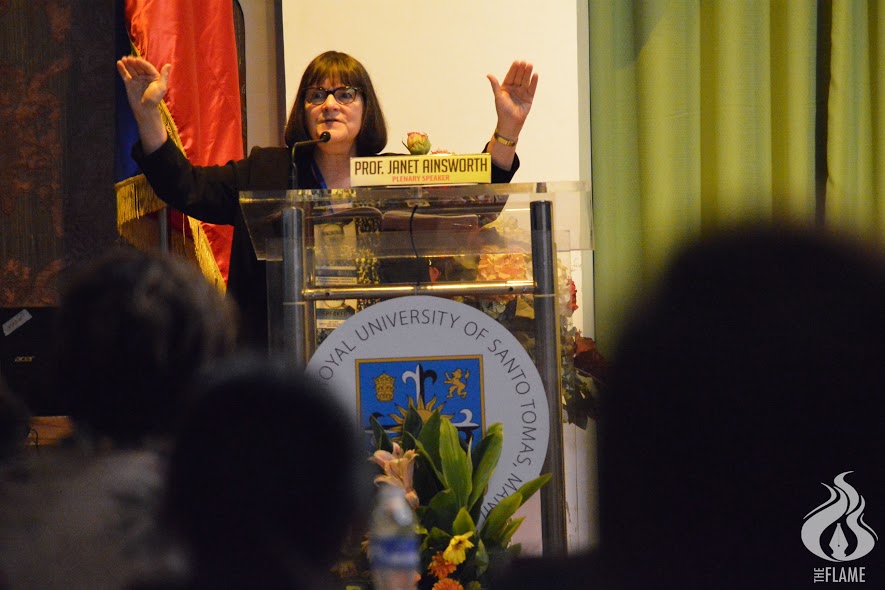
THE DISCIPLINES of law and language found themselves at a crossroad as international forensic linguists highlighted the influence of language in the application and interpretation of law.
International Association of Forensic Linguists (IAFL) Secretary Isabel Picornell said forensic linguistics plays a role in the justice system as “linguistic communication is the very thing that makes us human,” during the 2nd Asian Regional Conference of IAFL, themed “Forensic Linguistics/ Language and Law: Contexts, Issues and Trends.”
Associate Justice Antonio Carpio, the conference’s keynote speaker, said that language plays an important role on the decision of judges. “I would say as a jurist that forensic linguistics is the analysis of language to aide in the dispensation of justice.”
“As interpreters of law, judges always engage in the forensic linguistics. Judges look for the intent behind the written law, meticulously examining deliberations by lawmakers in the enactment of statutory law including the courts of legislative committees. [T]he purpose is to decipher the meaning of the written text of the statutory and constitutional law,” Carpio added.
Meanwhile, professors and a graduate of the Faculty of Arts and Letters stressed that “yes” or “no” questions lead to desired testimonies in court proceedings while misuse of modal words in legal contracts can lead to confusion.
English Language Studies graduate Sophia Andrade said lawyers impose control over a defendant in a court trial by using yes or no questions.
“Yes or no questions can be manipulated by lawyers to elicit their desired answers…It can affect the version of events presented,” she said. “The lawyers would deliberately employ these types of questions to achieve their goal in court which is to bring out their desired testimony.”
In addition, English professors Jean Celino and Rachelle Lintao said the modal verb “shall” is commonly misused in legal contracts, causing misunderstandings.
Conditions, present tense declaration, and statement of discretionary authorities are the areas where the use of “shall” is sometimes incorrect, they indicated.
“‘Shall’ is considered the most forceful [modal verb]. First, it suggests strong determination and obligation for an action to be done,” Celino said.
Plain writing in legal documents
Lintao also called on for the simplification of language in legal documents, specifically consumer contracts.
“There is a pressing need, ideological, global pursuit of having consumer contracts in a form that is understood by the consumers,” she said.
Simplification of language in legal documents enables people to comprehend the things they engage themselves into better while specific linguistic features and poor organization of document design hinder them from having a clear view of the points they need to know in a contract, Lintao noted.
Six parallel sessions on the second day covered the strands of legal discourse, courtroom interaction, language as evidence/ legal translation and authorship attribution while the two plenary sessions covered general topics on forensic linguistics.
The three-day event, organized by the UST Graduate School and UST Department of English, was held from July 7 to 9. F – Vann Marlo M. Villegas



